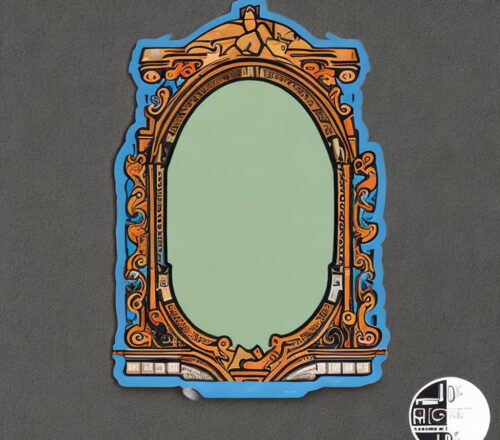
Table of Contents
Inventions Every Tech Lover Should Know About
Tech doesn’t just connect us; it profoundly shifts the way we live our lives. The very core of our daily routines, from the simplest tasks to the most complex, is enhanced by the tools born from human ingenuity. But have you ever wondered who stands behind these transformative inventions?
Inventors and innovators are the unsung heroes pushing the boundaries of what’s possible. Figures like Nikola Tesla, who dreamed of harnessing electricity in ways others couldn’t fathom, or more recently, someone like Elon Musk, whose vision stretches into the cosmos with SpaceX, show how individual passion can reshape our world.
To truly appreciate technology’s role in our lives, it helps to look back at its progression. From the humble wheel, easing labor and enabling transport, to the vast networks of the internet, connecting ideas globally in milliseconds, each invention tells a story of human resilience and creativity.
And while we’re surrounded by technology every day, it’s easy to take it for granted. But every device and service that makes our lives easier started as an innovative idea… technology isn’t just that laptop on your desk or the phone in your pocket; it’s part of a long tradition of problem-solving and progress.
So, as you look into the world of tech, whether you’re a seasoned enthusiast or just curious, think about what came before and what’s still to come. Recognizing the inventors and their inventions is not just about celebrating the past, but also about inspiring the future of innovation.
A Walk Through Historical Technological Milestones
Understanding the past gives us a richer appreciation for how far we’ve come. Imagine a world before any modern convenience… sounds tough, right? Technology didn’t just spring up overnight. It built up momentum over centuries, with each era leaving its mark on what we now consider essential.
Take the Printing Press. Introduced by Johannes Gutenberg in the 15th century, this invention revolutionized how people accessed information. Books could be produced on a massive scale, making knowledge more accessible than ever before. It was the starting point for a worldwide information explosion. Today, we call it the digital age, but its roots are in these early sparks of innovation.
But before digital, the Industrial Revolution was the star of the show. It reshaped economies and societies everywhere. Factories powered by steam engines, like the ones in Great Britain, transformed how goods were produced, setting the stage for modern economies. This period was also about significant inventions like James Watt’s steam engine, which fueled progress in transport and industry.
Fast forward to the age of communication with the telegraph, telephone, and radio. These devices collapsed distances, allowing messages to travel faster than ever before. Suddenly, it was possible to call someone miles away or tune into broadcasts on a household radio. These inventions laid the groundwork for the hyper-connected world we live in now.
It’s all about standing on the shoulders of giants. Each leap forward was built on the hard work of generations of inventors and thinkers who dared to imagine a better future. By understanding their contributions, we can better appreciate the technology woven into the fabric of our daily lives.
Understanding history isn’t just for the sake of knowledge; it’s a way to inspire new possibilities. Who knows? Maybe by learning about these milestones, you’ll catch the spark of creativity needed to fuel the next big thing in technology.
The Digital Revolution Era
The transition into the digital revolution marks a pivotal point where technology began to rapidly transform our everyday lives. Personal computers weren’t just a new gadget; they were a gateway to endless possibilities. Apple, with its iconic Macintosh, and Microsoft with Windows software, turned these machines into household essentials, fundamentally changing how people work, learn, and play.
The internet. It’s hard to imagine a world without it now, isn’t it? Born from the desire to connect people, it revolutionized information sharing. Companies like Netscape, Google, and Yahoo! took the web from a neat invention to a global necessity. Today, the internet is the backbone of many daily tasks, from browsing social media to managing finances online.
Then came smartphones, compact powerhouses that put computers in our pockets. With Apple’s iPhone and competitors’ responses like Android, the whole dynamic shifted. Suddenly, access to information, entertainment, and communication was on-the-go and at our fingertips. This level of connectivity has made smartphones indispensable to millions.
The digital revolution isn’t just about gadgets. It fundamentally reshaped industries like music, entertainment, and shopping. Think about how music went from CDs to streaming with platforms like Spotify, or how shopping moved online with giants like Amazon. Every shift made life a bit more convenient and opened up new opportunities for businesses and consumers alike.
This era is more than just technological progress. It’s about the democratization of information and opportunities. With more people gaining access to technology, voices that were once relegated to the fringes now have a platform. It’s a shift toward inclusivity, where technology breaks down barriers and opens up new worlds.
As we navigate this digital landscape, it’s essential to recognize its impact while staying mindful of challenges like digital privacy and security. Understanding how we got here not only offers gratitude for past innovations but also prepares us to tackle questions about technology’s role in our future lives.
Transcending Boundaries with Connectivity
Connectivity has become the heartbeat of modern life, seamlessly integrating technology into our daily routines. The leap forward with 5G technology is something I’m sure many have felt, even if not always overtly. It’s more than just faster internet on your phone; it’s about enabling a world where devices communicate in real-time. Imagine smart cities, autonomous vehicles, and seamless communication across devices—that’s the promise of 5G.
Alongside 5G, the Internet of Things (IoT) has been quietly revolutionizing how we interact with technology. From smart thermostats that learn your schedule to autonomous vacuum cleaners, IoT is about making everyday life a tad bit simpler and smarter. Everything from smart refrigerators to connected healthcare devices shows that IoT isn’t just a trend; it’s shaping how we think about everyday tech.
Then there’s cloud computing, which has transformed how we store and manage data. Gone are the days when you’d need to worry about running out of space on your computer. With services like AWS and Google Drive, data lives in the cloud, ready for instant access anywhere. This technology has been a lifeline for many businesses, especially during the remote work boom, ensuring teams stay connected and productive.
Video conferencing platforms deserve a special shout-out, particularly with the recent push towards remote work and virtual learning. Services like Zoom and Microsoft Teams didn’t just keep workplaces running… they kept people connected in a socially isolated world. This new way of interacting has opened doors to flexible working arrangements, making location less of a barrier to collaboration.
These advancements mean we’re living in a world that’s more interconnected than ever before. Every generation builds upon the last, using these tools to create new possibilities. The challenge is to harness this connectivity responsibly, ensuring we maintain balance and security as the digital world expands.
Mastering these technologies isn’t just for tech lovers… understanding them helps everyone make informed decisions about their digital lives. As these technologies develop, so too do the ways they can impact and improve our everyday routines.
Future-forward with AI, Automation, and Robotics
Artificial intelligence (AI) is no longer just the stuff of science fiction. It’s a game-changer across industries, redefining how tasks are handled and decisions made. From healthcare to finance, AI systems can analyze vast amounts of data faster and often more accurately than a human ever could. What this means for us is faster, more personalized services—but there’s always the question of how to manage AI so it responsibly benefits society.
Robotics takes automation to another level, complementing AI in industries ranging from manufacturing to service sectors. Factories are ripe with robotic arms that perform repetitive tasks with precision and efficiency. But it’s not just about industry: home assistants like robotic vacuums have quietly made their way into people’s lives, aiding daily chores and showing that robots are here to coexist.
Automation is all about making processes more efficient. That’s obvious in everything from self-checkout lanes at grocery stores to complex algorithms managing supply chains. While automation promises increased productivity, I can see why there’s a buzz around its impact on jobs. It’s essential to balance automation with opportunities for developing new skills and careers.
These technologies come with both excitement and caution. AI and automation can tackle problems previously thought unsolvable, but they also demand ethical considerations. Questions about privacy, bias in AI algorithms, and job displacement are real and need addressing. This means being proactive, setting guidelines and policies that ensure these advancements benefit everyone.
Wrapping your head around AI, automation, and robotics is more than just being tech-savvy. It’s about understanding how these tools can be better integrated into our societies, making lives easier while anticipating and mitigating any negative impacts. Embracing these changes requires both optimism and vigilance, keeping humanity at the center of innovation.
The Next Wave of Technological Innovations
Peering into the future, technology continues to evolve at an unprecedented pace, offering glimpses into a world that’s both fascinating and full of potential. Augmented Reality (AR) and Virtual Reality (VR) are at the forefront of this transformation, promising immersive experiences that blur the lines between reality and the digital realm. Whether it’s in gaming, education, or even retail, AR and VR are set to change how we interact with the world and each other.
Blockchain technology extends beyond cryptocurrencies to offer secure, decentralized solutions for a myriad of industries. It holds promise for enhancing transparency in supply chains, improving security in digital transactions, and even streamlining voting systems. Understanding blockchain’s capabilities can help pave the way for more trustworthy and efficient digital interactions.
Quantum computing stands on the brink of unlocking processing powers previously thought impossible. While we’re still in the early stages, its potential impact could redefine problem-solving in sectors like healthcare, finance, and logistics. Quantum computers aim to tackle complex calculations that today’s fastest computers can’t handle, opening up new frontiers in innovation.
Amidst these advancements, green technology is starting to take center stage, addressing the urgent need for sustainable solutions. From solar energy technologies to electric vehicles, green tech aims to reduce our impact on the planet and foster an eco-friendly future. It’s crucial to support and encourage these inventions, aligning progress with the health of our environment.
The next step for everyone, from tech enthusiasts to those simply curious about the future, is to stay informed and engaged with these developments. Embracing newer technologies not only opens opportunities for progress but also sets the stage for addressing global challenges more effectively. In doing so, we ensure that innovation serves humanity’s best interests, paving the way for a more connected, sustainable world.
Shop tip
Dizzling! Right?
Sources openai Language models, aitrot, picsart and mib
Create your own website
Take time to learn
Invest in your future
Embark on a journey into the realm of affiliate marketing and craft your own website within a vibrant, supportive community. Join me in this adventure, where you can begin as a free starter and stay as long as you desire. Enjoy complimentary hosting and foundational teachings to set you on your path. For those with advanced skills, opportunities to elevate your expertise await. Take a moment to explore and witness the magic for yourself!




